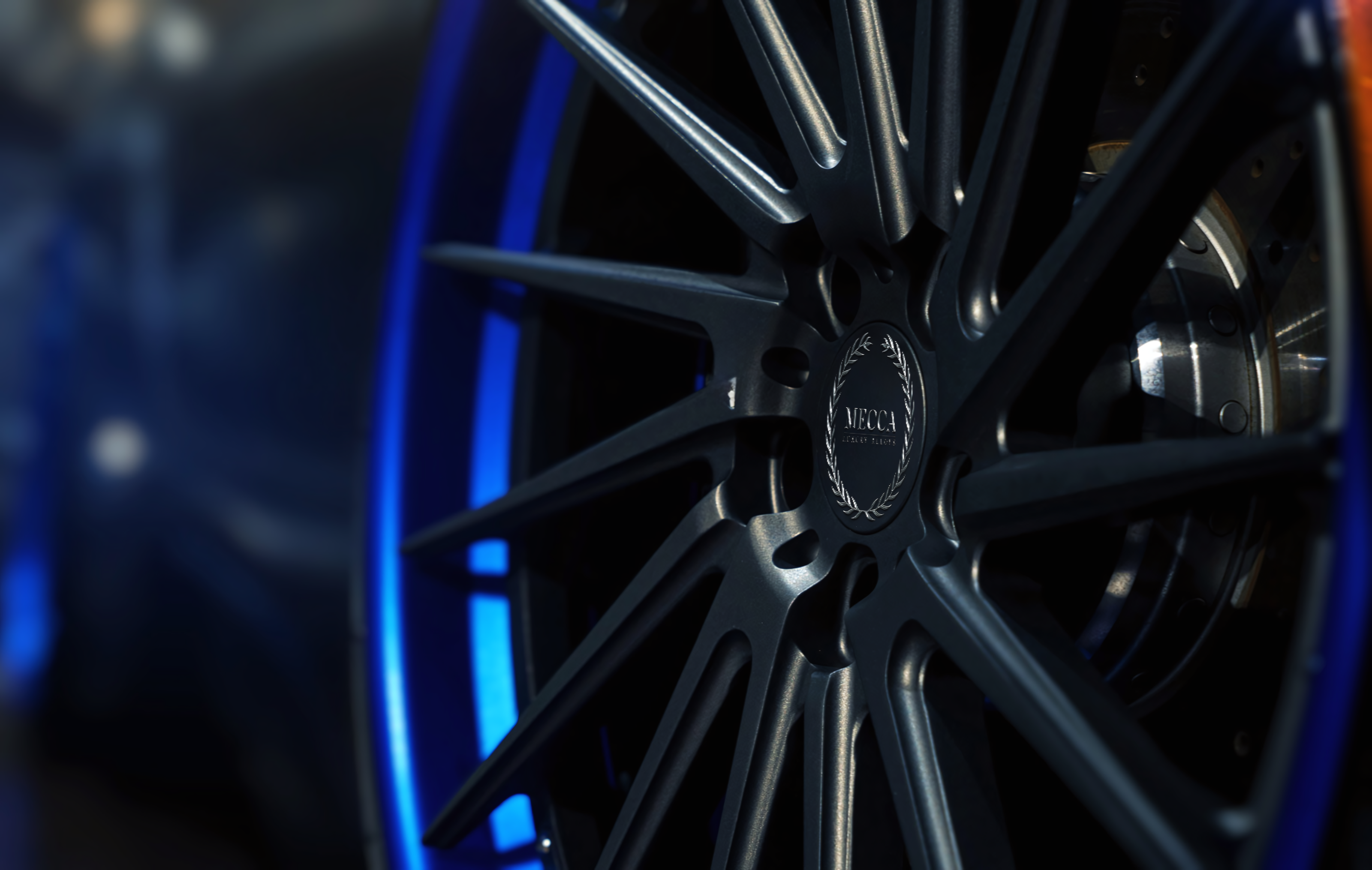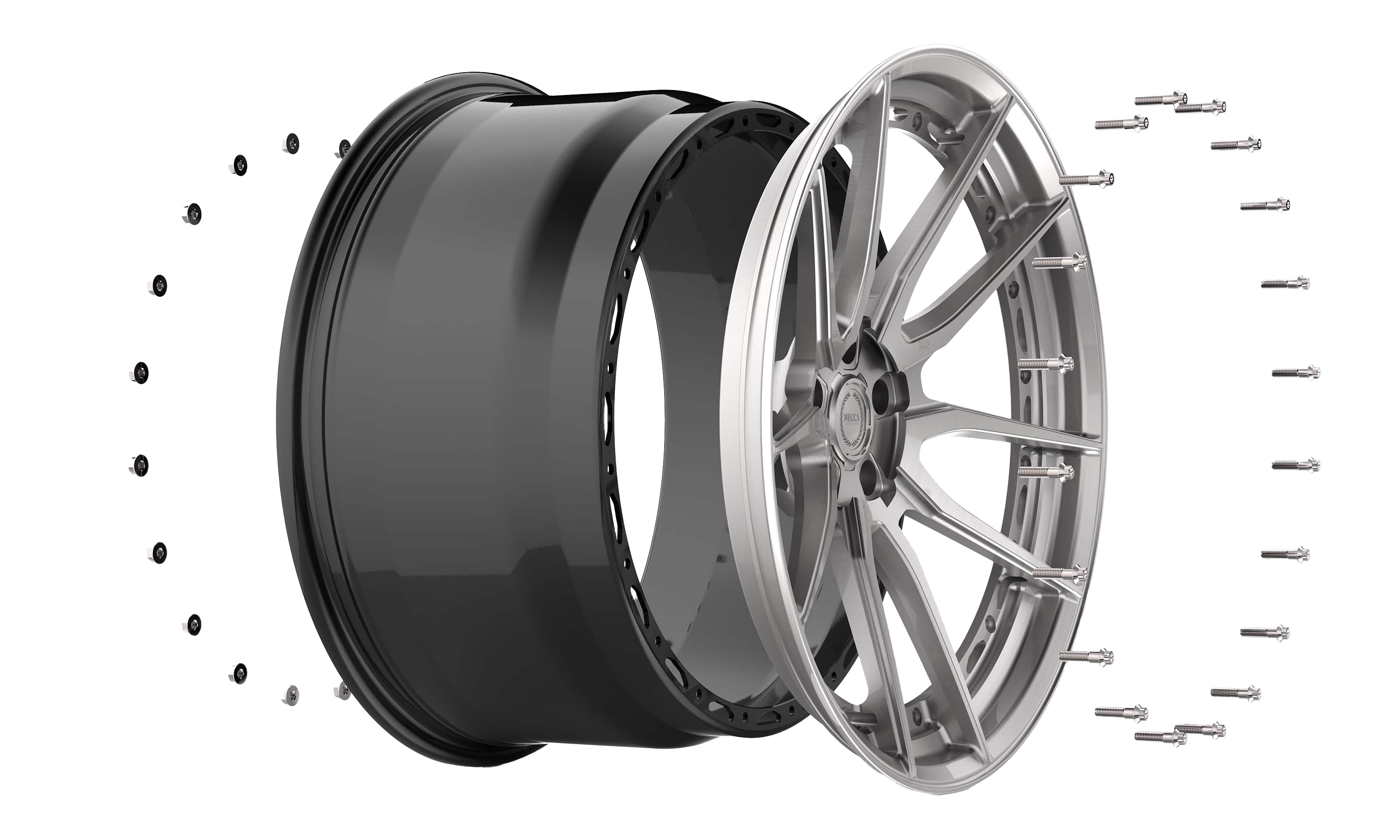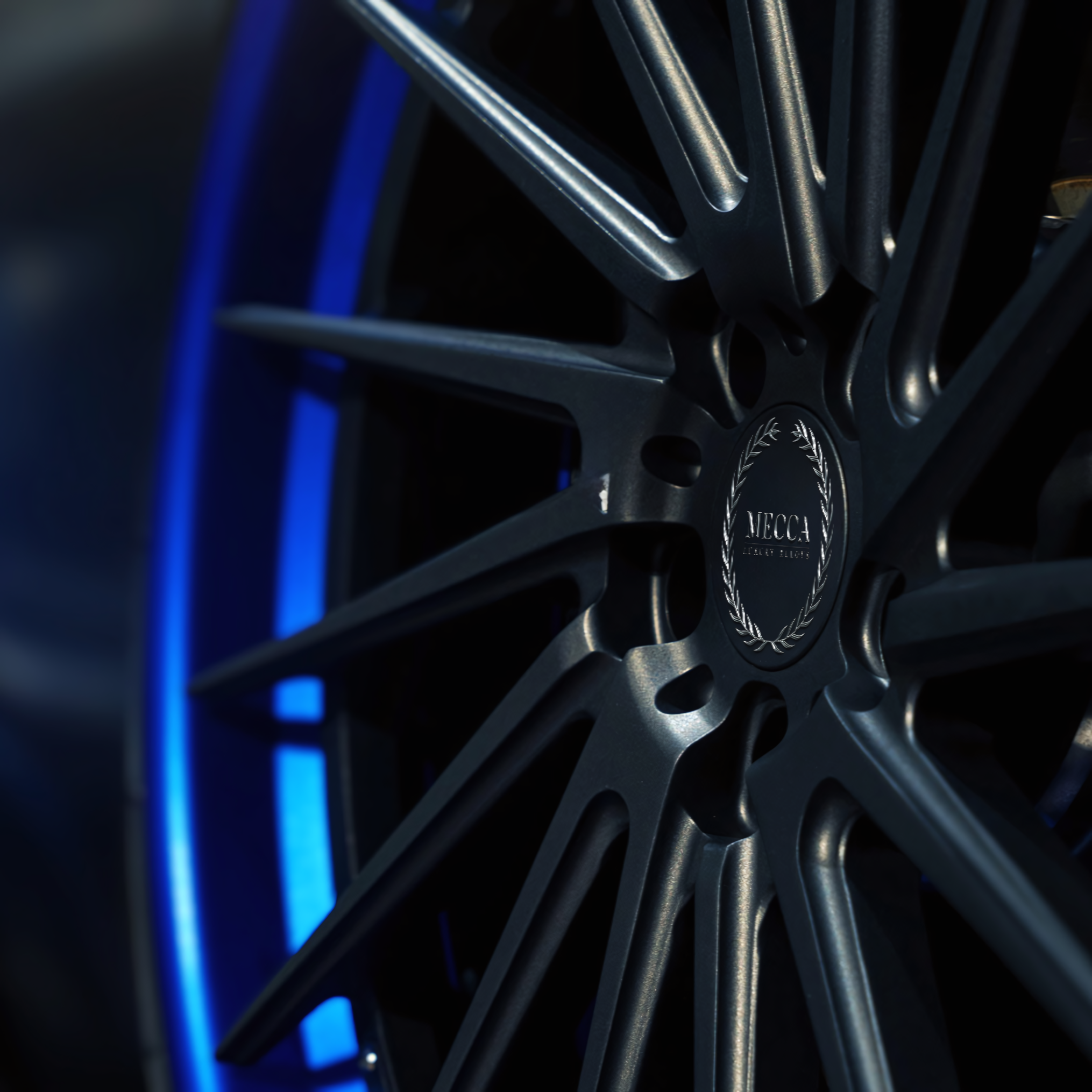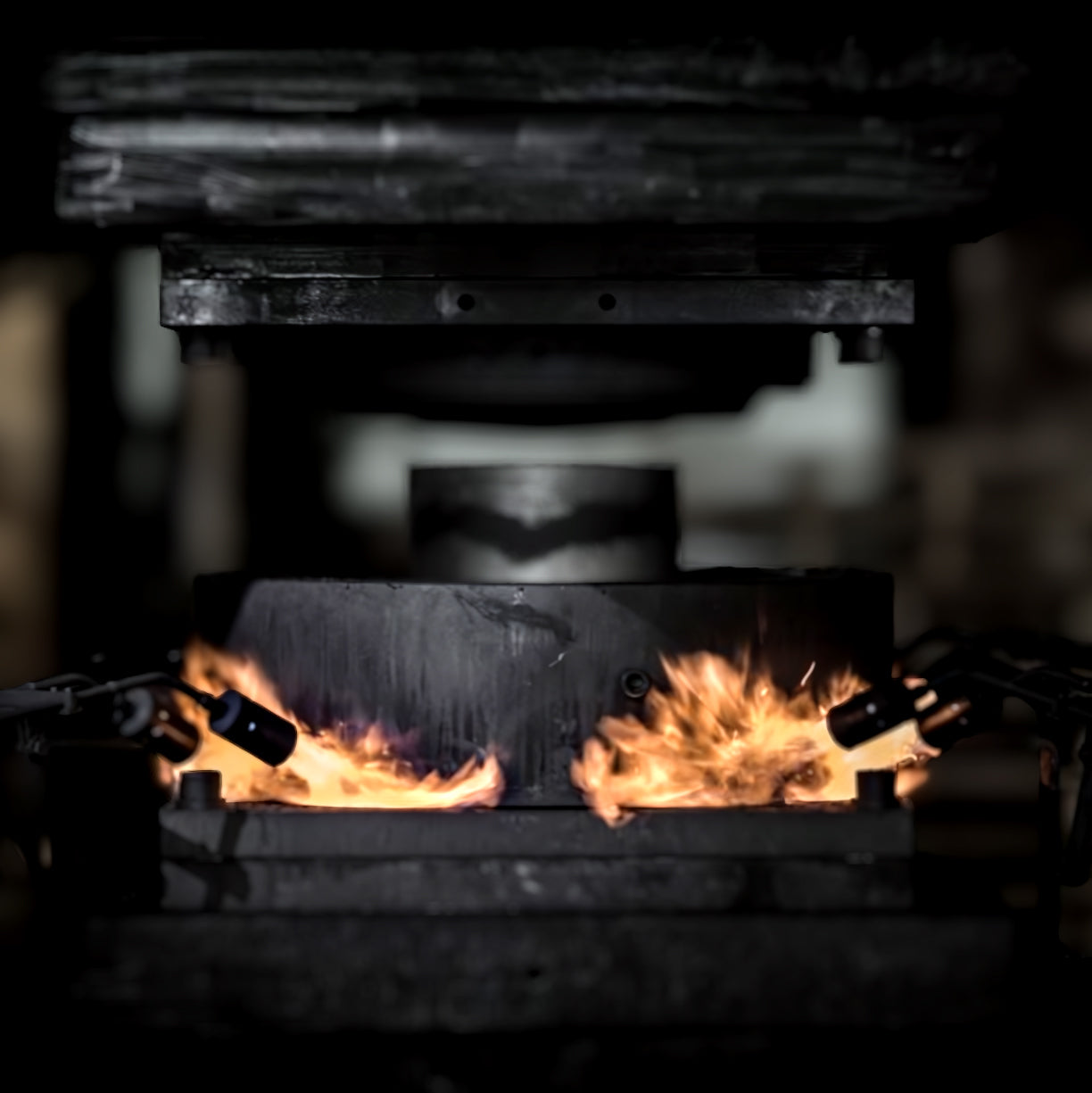Forged Alloy Wheels
Understanding 1-Piece, 2-Piece, and 3-Piece Construction.
When it comes to upgrading your vehicle’s performance and aesthetics, choosing the right wheels can make a significant difference. Among the various options available, forged alloy wheels stand out for their superior strength, reduced weight, and enhanced durability. In this article, we’ll explore the benefits and features of forged alloy wheels and delve into the distinctions between 1-piece, 2-piece, and 3-piece wheel constructions, helping you make an informed decision for your vehicle.
What Are Forged Alloy Wheels?
Forged alloy wheels are manufactured using a process that involves applying extreme pressure to a solid block of aluminium alloy. This process alters the molecular structure of the metal, making it denser and stronger than cast wheels, which are made by pouring molten aluminium into a mould.
Key Benefits of Forged Alloy Wheels:
1. Strength and Durability: The forging process results in a wheel that is significantly stronger than cast wheels. This strength allows forged wheels to withstand more stress and resist cracking or bending under extreme conditions.
2. Weight Reduction: Forged wheels are lighter than their cast counterparts. This reduction in unsprung weight improves vehicle performance by enhancing acceleration, braking, and handling. A lighter wheel also reduces the strain on suspension components.
3. Enhanced Aesthetics: Forged alloy wheels offer more intricate and precise designs due to the malleability of the aluminium during the forging process. This allows for unique and custom designs that can elevate the appearance of any vehicle.
4. Improved Heat Dissipation: The dense molecular structure of forged wheels allows for better heat dissipation. This is crucial for high-performance vehicles that generate significant heat during intense driving conditions, helping to maintain optimal performance.
Understanding Wheel Construction: 1-Piece, 2-Piece, and 3-Piece Wheels
When selecting forged alloy wheels, one of the key decisions is choosing between 1-piece, 2-piece, and 3-piece constructions. Each configuration offers distinct advantages, depending on your performance and aesthetic goals.
1-Piece (Monoblock) Wheels
Overview:
1-piece wheels, also known as monoblock wheels, are made from a single piece of forged aluminium. The entire wheel, including the centre, spokes, and barrel, is forged from one solid block of material.
Benefits:
Strength and Rigidity: The monoblock construction is exceptionally strong, offering excellent structural integrity and resistance to bending or cracking under heavy loads.
Lightweight Design: Since the wheel is forged as a single unit, it is typically lighter than multi-piece wheels. This weight reduction enhances overall vehicle performance.
Simplified Maintenance: With no bolts or seams, 1-piece wheels are easier to clean and maintain, making them ideal for daily drivers who want high performance without added upkeep.
2-Piece (Duoblock) Wheels
Overview:
2-piece wheels, or duoblock wheels, consist of two separate components: the wheel centre and the outer barrel. These parts are forged separately and then bolted or welded together.
Benefits:
Customisation: The 2-piece design allows for greater customisation in terms of offsets, widths, and finishes. Enthusiasts can mix and match different centres and barrels to achieve a tailored look and fitment for their vehicle.
Repairability: In the event of damage to the outer barrel, it can be replaced without the need to buy a completely new wheel. This can be a cost-effective solution for those who drive in challenging conditions.
Versatility: 2-piece wheels can offer a balance between the lightweight design of a monoblock wheel and the flexibility of a multi-piece construction, making them a popular choice for both street and track use.
3 Piece Wheels
Overview:
3-piece wheels are the most complex and customisable option. They consist of three separate components: the centre, the outer barrel, and the inner barrel. These pieces are bolted together using high-strength fasteners.
Benefits:
Ultimate Customisation: 3-piece wheels provide the highest level of customisation in terms of fitment, width, offset, and finish. Enthusiasts can create a truly bespoke wheel that meets their exact specifications.
Replaceability: Like 2-piece wheels, each component of a 3-piece wheel can be replaced individually. This makes them ideal for performance vehicles that might face extreme conditions, where components may need to be replaced more frequently.
Unique Aesthetics: The distinct multi-piece design offers a unique look that stands out, often associated with high-end, custom builds. The ability to have contrasting finishes on the centre and barrels adds to the visual appeal.
Choosing the Right Wheel for Your Needs
Selecting between 1-piece, 2-piece, and 3-piece forged alloy wheels depends on your specific needs and preferences. If you prioritise strength, simplicity, and weight savings, 1-piece wheels might be the ideal choice. For those seeking a blend of performance and customisation, 2-piece wheels offer versatility. If ultimate customisation and the ability to replace individual components are your goals, 3-piece wheels are the way to go.
In conclusion, forged alloy wheels, regardless of their construction type, offer substantial benefits over cast wheels, including enhanced strength, reduced weight, and improved aesthetics. By understanding the differences between 1-piece, 2-piece, and 3-piece constructions, you can make an informed decision that aligns with your vehicle’s performance needs and your personal style.




